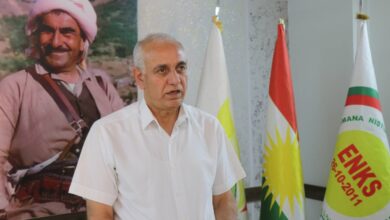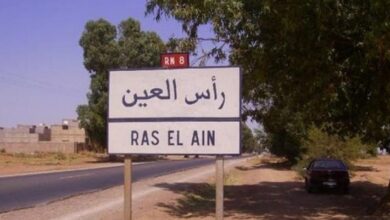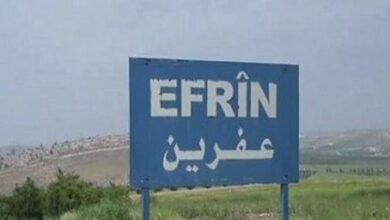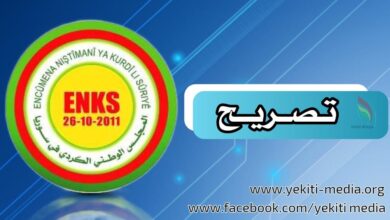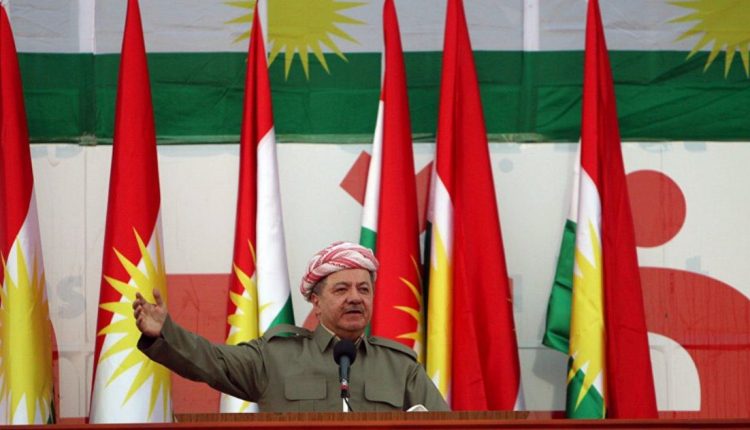
Thriving in Adversity: the past and future of Kurdistan in Iraq
GARY KENT
PART ONE: CRISES SURVIVED
Over the last five years, Kurdistanis in Iraq have endured many potentially existential crises, any one of which could have finished off a less cohesive society. They and the Kurdistan Regional Government (KRG) managed to survive all that was thrown at them and could now thrive in a changing Iraq, and further renew Kurdistan (shorthand for the Kurdistan Region in Iraq).
The only relatively cordial decade in a century of Arab/Kurdistani history, replete with second-class status and genocide, was halted in February 2014 when Iraqi Prime Minister Nouri Maliki severed federal fiscal transfers.
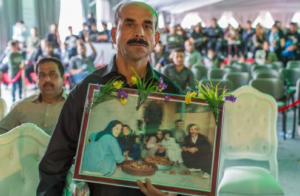
The Daesh [ISIS] capture of Mosul and a third of Iraq in June 2014 was followed by a sudden Daesh attack on Kurdistan in August that came within an ace of Erbil, which was only saved by prompt US airstrikes. Daesh took Shingal where Yezedis faced genocide and sexual enslavement for which the Kurdistanis are seeking international recognition and prosecutions.
The under-equipped Kurdistani army, the Peshmerga – those who face death – suddenly faced Daesh, well-armed with captured and advanced American military kit, along a 1,000 km border, initially alone because the Iraqi Army was in tatters.
Just after the fall of Mosul I accompanied MPs to Kirkuk to meet its Kurdistani Governor, Najmaldin Karim, who described how the Iraqi Army disappeared in a puff of smoke and hadn’t even thrown away the keys to hundreds of Humvees. Baghdad asked the Peshmerga to immediately reinforce their positions and they saved Kirkuk from Daesh.
The following year, I stood with MPs on a hill in Kirkuk two miles from Daesh positions. Peshmerga commanders said there was no co-operation with the Iraqi Army. They united thanks to Kurdistani diplomacy and international support: the Peshmerga expelled Daesh from villages leading to Mosul while the Iraqis took the city alley by alley.
Another year on, I accompanied MPs to a liberated village in the Mosul suburbs, where a brief battle prevented Daesh from seeding it with IEDs [improvised explosive device]. That wasn’t true of western Mosul, which also requires extensive reconstruction amounting to about $80bn.
After the sacrifice of nearly 2,000 Peshmerga and 10,000 injured, the Kurdistanis were the toast of the international community, but the danger signs were growing. How could the Iraqi prime minister forget to even mention the Peshmerga at the UN General Assembly?
Referendum
Kurdistani leaders, who had long warned that remaining in Iraq required a functioning federalism, including full implementation of the 2005 constitution, decided that its abandonment and the near collapse of Iraq showed they should control their own destiny.
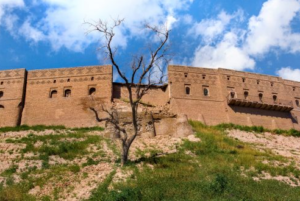
They believed that their decisive contribution to defeating Daesh had earned leverage with the great powers at the same time as neighbouring countries were weaker, and they could benefit from this new balance of forces.
Some outsiders say they stressed that Kurdistanis needed to act with Baghdad’s consent or would be on their own. Some say the Kurdistanis only heard positive messages and discounted negative ones. Israel’s public support wasn’t helpful, as I cautioned a senior government adviser on a BICOM delegation in Jerusalem in 2014.
Kurdistani leaders highlighted UN declarations about self-determination but also understood that status quo powers rarely advocate new nations and hoped the great powers would be neutral.
Kurdistani leaders considered pleas from the US, the UK, and others to defer the referendum due on 25 September 2017. The US came fully to this late in the day and its shuttle diplomacy between Erbil and Baghdad resulted in an offer on 23 September. It promised time-limited negotiations between Erbil and Baghdad on all issues and to recognise the need for an internationally backed referendum if talks failed. KRG President Masoud Barzani has since said he told the Americans he would accept the offer with one word changed – from ‘recognise’ to ‘support’.
That wasn’t agreed and the referendum proceeded. I observed it with MPs in Erbil, Kirkuk, and Slemani and, despite a partial boycott by non-Kurdistanis in Kirkuk, the overall turnout was high at 72 per cent. Ninety three per cent of voters endorsed the principle in a colourful and joyous day of celebration.
Statehood was always a long-term goal for negotiation with Baghdad, as Kurdistani leaders emphasised in talks with Baghdad. The referendum was not about immediate and unilateral independence. The hope was that Baghdad would avoid violence, as promised, and seek a fresh start with Kurdistan, not necessarily for statehood but maybe confederation or genuine federalism, over years.
Backlash and crackdown
However, the Americans condemned the referendum as illegitimate. This inadvertently encouraged Iran to persuade Iraq to crack down on the Kurdistanis. Iran has also long sought a Shia corridor to the Mediterranean, Hezbollah, and Syria with a quiescent Kurdistan en route.
Then Iraqi Prime Minister Haider Abadi had accepted the ‘undisputed right’ of Kurdistani independence in discussions, and Baghdad and Erbil had established two joint committees according to the American expert, David L. Phillips in his book The Great Betrayal, how America abandoned the Kurds and lost the Middle East.
However, international criticism of Kurdistan emboldened Abadi to reverse his country’s humiliation by Daesh by humbling the Kurdistanis who had done so much to repel Daesh, and to paint himself as a strongman in Iraqi elections the following May.
The referendum was swiftly followed by a blockade of global flights from Kurdistani airports, which endured for six months, and punitive measures such as halting all international money transfers to and from Kurdistan. Worse was coming.
Kirkuk
Kurdistani leaders used the referendum in disputed territories to establish the popular will to join Kurdistan and to endorse independence. That aggravated neighbours more than if the referendum had been restricted to the current KRG. Kirkuk, which had been violently Arabised under Saddam Hussein, is a complex issue between Kurdistanis and Arabs.
On 16 October 2017, the Iraqi Army and Iranian-backed Shia militia took Kirkuk in hours, using advanced American arms and tanks (originally despatched to fight Daesh), which literally crushed Peshmerga and put thousands of Kurdistanis to flight. The Kurdistani flag was trampled on, Kurdish was banned in official matters, and murders, arson, extortion, and discrimination against Kurdistanis ensued.
The Governor, with whom referendum observers lunched in his residence, only just escaped with his life, thanks to an American tip-off, and those offices were occupied by Shia militia who plastered the walls with photos of Ayatollah Khomeini.
Least said, sooner mended is the common approach to accusations of internal collaboration with Baghdad and Iran over Kirkuk, but Iraq’s seizure of Kirkuk and then other disputed territories meant that the KRG ‘lost’ territory, oilfields, and revenues, especially in Kirkuk, which Kurdistanis see as their Jerusalem.
Some insist on referring to northern Iraq but the current Kurdistan Region is only part of that geographical space. One could talk of the Kurdistan Region within Iraqi Kurdistan as the KRG area is about half of the wider Kurdistan. As the Americans and others stress, Kirkuk and other areas remain disputed territories subject to Article 140 of the 2005 Iraqi constitution that provided a mechanism for resolving their final status, although the commitment to do that by 2007 was ignored. That remains central to increasing trust between Erbil and Baghdad and the task of the UN Mission in Iraq – to resolve this dispute – should be prioritised.
The disputed lands could constitutionally have been controlled by the KRG, Baghdad, or jointly. But Baghdad used violence in defiance of the constitutional ban on using the army to settle internal differences and to enforce what the Iraqi constitution claims is a voluntary union.
Attack on KRG
Abadi then sought to breach the borders of undisputed Kurdistan by sending armed columns towards Erbil and the main crossing with Turkey, through which Kurdistani oil and billions of dollars of goods pass. Leaders assumed the aim was to put Kurdistanis in a box and dissolve the KRG.
However, the Peshmerga successfully resisted at several battles. France, Germany, and the Holy See broke the diplomatic blockade on Kurdistani leaders, who crossed the border with Turkey to catch flights abroad, and Baghdad backed down.
Despite fierce rhetoric, Ankara did not close the border or the oil pipeline although it seized KRG funds in Turkey. Relations with Turkey are warming slowly. And they are warming more rapidly with Baghdad following Abadi’s defeat in the May 2018 Iraqi parliamentary vote and the election of Adil Abdul-Mahdi.
Last May I met the Deputy Foreign Minister in Baghdad. He volunteered that Shia parties had never understood federalism and that the then former President Barzani should not be isolated. Barzani later returned to Baghdad for the first time in two years for high-level meetings and as the KDP leader, could be a moderating figure in Iraq, and maybe between Syrian Kurds and Turkey.
Kurdistani leaders have, over several decades, acquired the habit of robust pragmatism in dealing with neighbours. KRG Prime Minister Nechirvan Barzani discussed relations with Baghdad with British MPs before the liberation of Mosul and often used the word, ‘doable’. That is the next phase of the Kurdistani journey.
PART 2: THE NEXT FIVE YEARS: THE POSSIBILITY OF RENEWAL
I am cautiously optimistic about a change of heart in Baghdad. Mahdi’s new government is refreshingly pragmatic. He fought alongside the Peshmerga against Saddam and left the cabinet when it vetoed his plans for a deal between Erbil and Baghdad. He has said he wants to resolve all outstanding issues.
Former KRG Prime Minister, Barham Salih, now Iraqi President, can also smooth troubled waters. He recently persuaded Turkey to reopen air links with Slemani, which had been closed long after the opening of Erbil’s airport to Turkish flights, because of a dispute about the PKK’s role in Kurdistan.
A good start was made with a deal on stranded oil in Kirkuk. Billions were lost in the freeze between Erbil and Baghdad. Abadi’s initial plan was to truck and pipe oil to Iran but American sanctions on Iran kyboshed this and oil may be piped via Kurdistan.
Erbil and Baghdad are negotiating a third way between total Iraqi and total Kurdistani control of the region’s vast oil reserves, which would make it the world’s tenth biggest oil producer if it were independent. The deal permits some independent Kurdistani exports and repays other production with guaranteed payments to KRG civil servants and Peshmerga. The Iraq Budget insulates them from disputes, which previously caused months of not being paid or of salaries being partly withheld on an income-related basis.
Shia militia had been extorting import duties’ at so-called customs points between Kurdistan and Iraq, which made a mockery of Iraq as a unified country and market, and is being stopped. Sunni lands that border Kurdistan remain insecure and need decentralised governance that overcomes the alienation of Sunnis from Baghdad and prevents a new Daesh. The current Daesh is still active in Mosul and in Kirkuk where security degenerated under Iraqi control, with about 75 Daesh attacks every month.
KRG Prime Minister Barzani and Mahdi recently discussed joint Peshmerga and Iraqi Army patrols in the disputed areas. This is urgent because Daesh is exploiting a long five kilometre gap between the two armies.
Fellow Rudaw columnist David Romano observes that: ‘With a renewed spirit of cooperation under Abdul-Mahdi, Erbil and Baghdad may even prove capable of moving forward to solve other long festering problems, including the need for a census throughout Iraq (especially in the disputed territories), a fair national hydrocarbons law, a second chamber of government representing the regions and governorates, a federal supreme court appointed by both Baghdad and the regions and governorates, and similar issues.’
Mahdi may not last and a successor could revert to Baghdad’s default position of short-changing the Kurdistanis. That makes it urgent to do lasting deals with Mahdi, and renew Kurdistan.
Kurdistan’s Assets
After nearly 30 years of freedom from Saddam, an experienced Kurdish political leadership pulled off tremendous achievements in the face of adversity. Despite Iraqi and UN sanctions in the 1990s, Kurdistan bettered the Iraqi record on infant mortality, for instance.
After Saddam’s fall in 2003, they secured an historic rapprochement with Turkey, which became Kurdistan’s biggest trading partner. And they constructed from scratch a vibrant energy sector involving international oil companies that spurn corruption given shareholder scrutiny and anti-corruption laws.
I first saw Kurdistan in 2006 and have witnessed the steady improvement of its roads, hotels, housing, airports, hospitals, and living standards, although many projects were halted in recent years.
I commend their internal security – I feel much safer there than in London. The last major atrocity was in 2004 when 101 people were killed in two co-ordinated jihadist attacks in Erbil. A recent survey said Erbil is the fifth safest capital city in the world.
They have significantly advanced women’s rights by tackling domestic violence and female genital mutilation. Thanks partly to a quota, nearly 40 per cent of MPs are women, which is better than both Iraq and the UK.
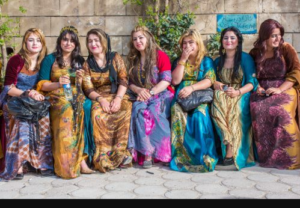
Christians and other religious minorities as well as ethnic minorities are valued. The term, ‘Kurdistani,’ is officially encouraged in order to promote inclusiveness for all peoples of Kurdistan and avoid denoting Christians, Turkmens, and others as separate.
Kurdistanis also coped generously with an influx of Syrian refugees from 2011, as well as approximately 1.5 million mainly Sunni Arabs from Mosul and Nineveh. A sudden increase of about a third in the population squeezed public services, with precious little assistance from Baghdad.
I have discussed the psychological traumas of victims of Daesh at camps for internally displaced people in Kurdistan. There are few clinical psychologists in Kurdistan but I saw such students caring for Yezedis with a small market garden and knitting circle at the SEED project run by the inspiring Sherri Talabani.
Another woman who deserves great credit is Dashni Morad, a feminist who uses her platform as an artist to encourage environmental awareness through her Green Kids charity. I last saw her in a classroom in a refugee camp where she asked me to read a story. I chose Rudyard Kipling’s Jungle Book and saw the Syrian kids’ eyes burning bright.
Kurdistan’s magnetic charm includes the stunning natural beauty of its vast and verdant plains with their rivers, canyons, mountains, and skiing. And more good hotels, restaurants and bars. British MPs persuaded the BBC’s motor show Top Gear to film there and its presenters praised its safety and the beauty to large global audiences. Erbil won the prestigious Arab capital of the year award in 2014, sadly just before Daesh brutally burst into the open.
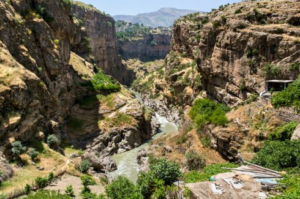
Tourism attracts about two million Middle East people a year but few Westerners, who are deterred by the four-letter word, ‘Iraq,’ and official Foreign Office advice to only travel there for essential purposes. Changing the travel advice and encouraging direct flights, as British Airways is considering, would allow more people to experience this friendly and peaceful country.
After the blockade
Once international flights were reinstated last year, I spent two fortnights in Kurdistan to catch up. Students I addressed in three universities asked probing questions. A decade back, many students seemed timid but now they don’t hold back from criticising Britain for the Sykes-Picot inspired carve up a century ago of the Middle East and a theory that Britain acquiesced in the Iraqi takeover of Kirkuk to win a contract for BP. This is a coincidence, of course, but some put two and two together and get five. But their gumption is encouraging.
The UK, however, remains widely admired and our active diplomats and ministers are building a UK/KRG Reform Partnership while Western diplomats support a strong KRG within a unified Iraq.
Education is vital. About a third of the people are consumers and producers from kindergarten to university. There was just one university in 1991, five in 2003, and now over 30 public and private campuses. Four teach in English, the unofficial second language. Quantity must become quality to nurture new leaders, a workforce, and a civil society. Foreign universities could open campuses with accredited degrees, although Foreign Office travel advice makes that challenging, and lift higher education, while pre-university schooling needs modernisation.
Political renewal and reform
Life is improving despite increased unemployment, poverty, and inequality in the last five years. Kurdistan needs concerted action to renew its politics and to reform a dysfunctional economy.
Power has been shared since 1991 between the Kurdistan Democratic Party (KDP), most associated with the Barzanis, and the Patriotic Union of Kurdistan (PUK), most associated with the Talabanis. The parties each received half the votes in the first parliamentary elections in 1992 but later waged a bitter civil war, and for 15 years ran separate administrations in the yellow and green zones – the western provinces of Erbil and Duhok, and the eastern province of Slemani, now with the new one of Halabja.
The Peshmerga remains divided between party controlled units although others are fully controlled by the ministry. Damaging divisions emerged in recent tit-for-tat arrests by PUK and KDP controlled security forces, which the prime minister reversed. The KRG seeks the unification of Peshmerga units as a state institution.
The PUK split in 2009 and was briefly beaten into third place by leading members who founded Gorran, the Change party. But the partnership of the young Nechirvan Barzani and Qubad Talabani, as Prime Minister and Deputy Prime Minister from the KDP and PUK respectively, powerfully symbolised unity and stability in troubled times.
In parliamentary elections last September, the PUK regained second place but with 21 per cent compared to the 45 per cent of the KDP – there are 100 seats in the parliament, plus an 11-strong list for religious and ethnic minorities. Gorran, which was in opposition and in government before it was expelled in October 2015, wants to rejoin government.
Forming a new government has been slow as the parties seek a consensual government and concern the balance of coalition parties and ministries and parliament, a ministry in Baghdad, and the Kirkuk Governorship. The KDP nominated the current Kurdistan security supremo, Masrour Barzani as Prime Minister and Nechirvan Barzani as President.
Foreign Minister Falah Mustafa has said that Kurdistan is moving from revolutionary to democratic legitimacy, which was menaced by recent multiple crises but can now resume. Again, it is about quantity becoming quality, form being replaced by deeper content.
Winner takes all, rather than coalition plus opposition, is the norm in the Middle East. A comparison can be made to mandatory power-sharing in Northern Ireland where parties ran ministerial fiefdoms, advocated different political goals, and lacked collective responsibility.
There are fewer policy differences between the Kurdistani parties and greater cohesion but they need more evidence-based policy-making, which is championed by the Middle East Research Institute (MERI) think tank. MPs have also asked British MPs to help train their MPs as better public representatives, who could make the parliament a more important institution, and better hold ministers to account.
There is also a wider feeling, I think, that parties must better engage citizens and especially young people – half of Iraqis are under 19. Letting the parties handle politics while delivering security and rising living standards largely worked until the crises of 2014 but can no longer reliably generate public support, although the two historic parties recently won two-thirds of the vote.
Media reform
Kurdistan has a verbal rather than written culture. Media outlets are of varying quality and Kurdistanis triangulate to establish the truth. This is also a practical issue. When Daesh menaced Erbil, many refused to rely on the media but followed Facebook where Daesh placed fake news. Many fled and clogged the roads. Inexperienced journalists broadcast sensitive information before the fall of Kirkuk. There is an urgent need to improve media standards and training. Kurdistan needs a BBC.
Some journalists have also been murdered and a TV station in Slemani was torched in 2011 by armed men. I cannot comment on particular cases, but the principle is that the state prosecutes those accused.
Some of the Diaspora has returned to Kurdistan with valuable skill sets, which are a form of foreign investment. However, thousands then returned to the West in frustration at bureaucratic inertia, tackling which is the key to political and economic progress.
Towards economic reform and a Kurdistani capitalism
Party-state formations traditionally sustained themselves by rewarding supporters through high state employment that takes 70 per cent of state spending. An expensive public sector also has an opportunity cost. There is little incentive to join the private sector or to become entrepreneurs. Economic and political pluralism go together. A bigger private sector would create jobs that allow a smarter state to trim its workforce and diversify in agriculture, tourism, and light industry.
Too few people work in agriculture although anyone can see the huge potential, with natural water supplies, for self-sufficiency and exports. At a public discussion at the Department of Foreign Affairs with Foreign Minister Mustafa, and foreign diplomats, I highlighted the need to export Kurdistan’s quality pomegranates – Hanar. Hanar from Halabja in Waitrose would rebrand Kurdistan.
Oil revenues account for over 95 per cent of income in a rentier economy. Price volatility can slash budgets for fixed costs or inflate complacency about poor productivity and diversity of income and ownership. Corruption is common in the Middle East and may not be as counter-productively inefficient as in the rest of Iraq but it deters smaller foreign investors.
Lower oil prices and reduced budgets forced austerity measures to curb the deficit and debt. The KRG reform programme aims to take public services online, like UK.gov, to reduce the steps needed to obtain a driving licence and to form a company in hours not weeks. oncerted reform could drive a more dynamic Kurdistani capitalism with safeguards in their own mix.
Greening Kurdistan
An Agriculture and Water minister once quipped that people used to have a weekly bath even if not needed but now freely splash it round, wasting a third of clean water. The KRG has raised utility charges and aims to be smarter with precious resources.
There is little public transport and many high-performance cars on congested and dangerous roads. Trams could ease jams and inter-city trains could unite Kurdistanis. Longer-term, rail networks, which suffer less than roads from the heat, could knit Middle Eastern countries together and boost trade.
And there’s the litter. Kurdistanis take to the mountains on weekends for their famous picnics but many dump their rubbish, which pollutes rivers, impairs tourism, and deserves zero tolerance.
Kurdistani leaders rightly say friends should be frank. Here are my suggestions to maximise happiness and cohesion, for a country I have come to love:
Make Iraqi federalism work and avoid the blame if that proves impossible.
Encourage Kurdistanis to learn Arabic to maximise trade and understand Iraq, and vice versa.
Get ahead of the curve economically, environmentally, and educationally.
Encourage start-ups.
Facilitate a film industry to present Kurdistani stories to the world.
Get Hanar into Western supermarkets.
Boost and then boast some more about Kurdistan’s secular institutions, religious moderation and tolerance, its protection of Christians as equals, and its challenge to extremist ideology.
Engage youth.
Make Kurdistan less of a man’s world and visibly increase the profile and participation of women in public life.
Less litter.
Fewer Toyotas. More trams and trains.
Encourage expert exchanges to improve policy-making and strategic communications.
Aspire to a BBC.
Prioritise tourism.
Make Kurdistan a model of reform for the wider Middle East.
fathomjournal

